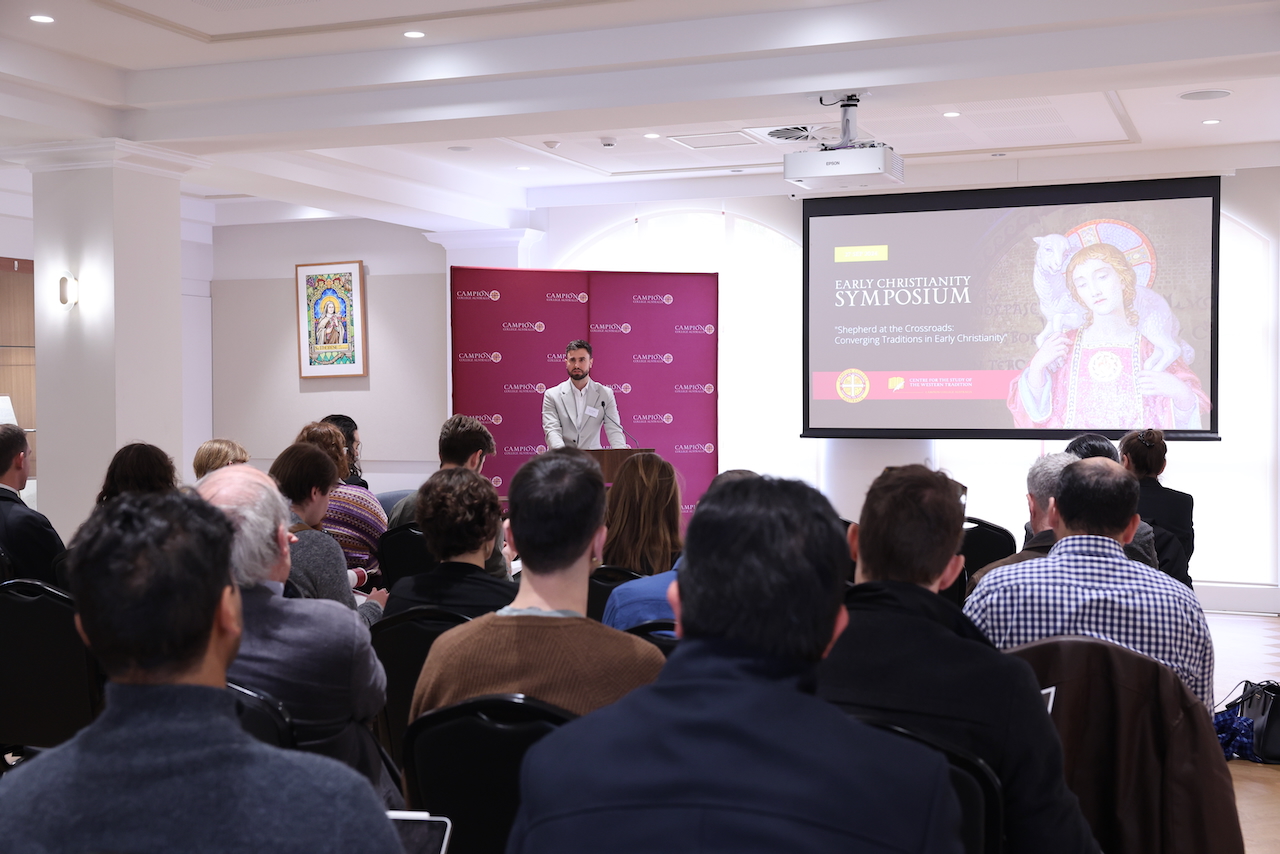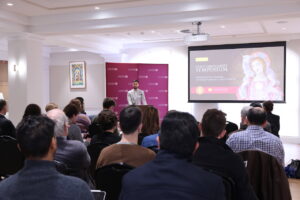

On September 27-28, 2024, Campion College’s Centre for the Study of the Western Tradition hosted a two-day symposium titled “Shepherd at the Crossroads: Converging Traditions in Early Christianity”. Held at the college’s Grand Hall, the event attracted a distinguished lineup of speakers and attendees, including scholars, students, and members of the public, all eager to explore the multicultural and multi-traditional character of early Christianity.
For those unable to attend, recordings of the presentations are now available:
- Dr Vassilis Adrahtas | “Pseudo-Dionysius the Areopagite and the Neoplatonists: One Wonders Who is the Christian and Who is the Pagan” (KEYNOTE)
- Dr Chris Baghos | “Shepherds of Ireland and Iona: The Convergence of Ascetical Theology and Hagiographical Motifs in Adomnán’s Life of Columba”
- Dr Danijel Džino | “Christianity and Paganism in Dark Age and Early Medieval Dalmatia”
- Dr Kevin Wagner | “Patristic Reception of Jewish Liturgical Texts: The Tabernacle”
- Dr Lydia Gore-Jones | “Solomonic Literature: Jewish, Hellenistic and Christian”
- Dr Mario Baghos | “Might Unassailable? Walls, Gates, and the Marble King of Byzantine Constantinople”
- Dr Lyn M. Kidson | “A Citizen of Empire or Citizen of the World? Paul’s Textual Identities as a Roman Jew and Greek Christian”
- Mr Gabriel Jower | “Infanticide or Indifference? Disentangling the use of ektithе ̄ mi andekballō in Patristic and Documentary Greek”
- Mr Mark Matic | “Barbarism Begins at Home: Revelation, Dionysius of Alexandria, and the Greek Prescriptivist Tradition”
Complete the form below to access the recordings:



